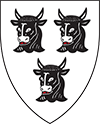Fellows
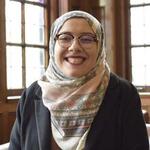 |
Leenah SafiChaplain's OfficeLeenah Safi grew up in Ann Arbor, Michigan and graduated from Zaytuna College in Berkeley, CA with a B.A. in Islamic Law and Theology in 2014. She went on to complete a Master of Divinity (MDiv.) degree in Interreligious Engagement and Chaplaincy Studies at Chicago Theological Seminary in 2018. She has worked as a college chaplain with the Felicity Foundation at the University of Michigan and Wayne State and taught with a variety of Muslim community organizations on subjects such as purification of the heart, early women in Islam, and convert care. Leenah is active in the fields of pastoral care and practical theology as a part of her PhD work at Chicago Theological Seminary, where she is working on a dissertation entitled: “Shūrā: A Practice of Relational Care in the Formation of Muslim Selves.” She joined Yale University’s Chaplain Office as an Assistant Muslim chaplain in the summer of 2024. |
 |
Larry SamuelsonEconomicsLarry Samuelson is the A. Douglas Melamed Professor of Economics at Yale University. Samuelson earned his B.A. from the University of Illinois in 1974 and his Ph. D. in Economics from the University of Illinois in 1978. He works in economic theory, with a particular interest in game theory. His areas of specialization include the evolutionary foundations of economic behavior, the theory of repeated games, and nonBayesian models of behavior. He has served as a co-editor of Econometrica. the American Economic Review, and the American Economic Review: Insights, and the president of the Game Theory Society, and in various roles in the Econometric Society. He is a Fellow of the Econometric Society and the American Academy for the Arts and Sciences. |
Lauren SansingNeurologyDr. Sansing completed her residency in Neurology in 2006 followed by a Vascular Neurology fellowship from 2006-2008, both at the Hospital of the University of Pennsylvania. Her clinical interests include acute ischemic stroke and intracerebral hemorrhage as well as other complex neurovascular diseases. Following clinical training, she completed a Master of Science in Translational Research at Penn studying immune mechanisms of injury after intracerebral hemorrhage. She then joined the faculty at the University of Connecticut and Hartford Hospital in 2010, where she was active in the Departments of Neurology, Neuroscience, Neurosurgery, and Immunology. Dr. Sansing came to Yale in the summer of 2014, where she continues her work in cerebrovascular diseases and neuro-inflammation through basic, translational, and clinical studies. She leads a NIH-funded laboratory identifying immunological treatment targets for stroke, intracerebral hemorrhage, vascular cognitive impairment and dementia. She has received numerous national and international awards for her research, including the Established Investigator Award from the American Heart Association, the Derek Denny-Brown Neurological Scholar Award from the American Neurological Association, the Michael S. Pessin Stroke Leadership Award from the American Academy of Neurology, and is an elected member of the Henry Kunkel Society and the American Society for Clinical Investigation. Email Lauren Sansing |
|
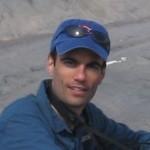 |
Eric SargisPhysical AnthropologyEric J. Sargis is a Professor of Anthropology, with secondary appointments in the Department of Ecology and Evolutionary Biology as well as the School of Forestry and Environmental Studies. He is also Curator of Mammalogy and Vertebrate Paleontology at the Peabody Museum of Natural History. His interests include the origin and early evolution of primates, and the functional morphology and systematics of treeshrews (Scandentia), plesiadapiforms (Primates), and Old World monkeys (Primates, Cercopithecidae). He recently published an edited book, Mammalian Evolutionary Morphology: A Tribute to Frederick S. Szalay. He has conducted fieldwork in Cambodia, Malaysia, Indonesia, Peru, Bolivia, Brazil, Madagascar, Ethiopia, Alaska, Montana, Wyoming, North Dakota, and Florida. He is also a Series Editor for the Vertebrate Paleobiology and Paleoanthropology book series. |
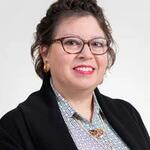 |
Jane SavageSenior Director, Yale Best Practices and LaborJane Savage is responsible for Union-Management Relations at Yale, including Labor Relations, which supports the University’s relationships with its five unions, and Best Practices, a collaborative initiative between Yale and its two largest unions, UNITE HERE Locals 34 and 35. Ms. Savage has responsibility for supporting Yale’s negotiations to achieve labor agreements and for steering constructive relationships among managers, union representatives, and employees. She oversees a team of labor relations professionals and change management facilitators who advise, instruct, and support culture change projects undertaken by managers and union leaders. Prior to joining Yale, Ms. Savage was a senior consultant and faculty member in Cornell University’s School of Industrial & Labor Relations Extension Division in New York City, providing training and consulting services to industry and labor organizations. In her most recent role, she led the ILR Extension’s organizational change group and supported union-management collaboration in the private sector health care industry in New York City. Ms. Savage previously worked as a consultant to organizational change initiatives in unionized workplaces in the manufacturing sector and started her career as an engineer. She holds a B.S. in Engineering from The Ohio State University and a Master’s in Public and Private Management from Yale’s School of Management. Email Jane Savage |
 |
Shreya SaxenaEngineering and Applied ScienceShreya Saxena is broadly interested in the neural control of complex, coordinated behavior. She is an Assistant Professor in the Biomedical Engineering Department and a core member of the Center for Neurocomputation and Machine Intelligence at the Wu Tsai Institute at Yale. From 2020 to 2023, she was an Assistant Professor at the University of Florida’s Department of Electrical and Computer Engineering. Before this, Shreya was a Swiss National Science Foundation Postdoctoral Fellow at Columbia University’s Zuckerman Mind Brain Behavior Institute in the Center for Theoretical Neuroscience. She did her PhD in the Department of Electrical Engineering and Computer Science at the Massachusetts Institute of Technology studying the closed-loop control of fast movements from a control theory perspective. Shreya received a B.S. in Mechanical Engineering from the Swiss Federal Institute of Technology (EPFL), and an M.S. in Biomedical Engineering from Johns Hopkins University. She is honored to have been selected as a Rising Star in both Electrical Engineering (2019) and Biomedical Engineering (2018). Email Shreya Saxena |
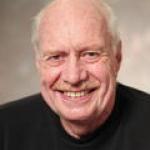 |
John SchowalterEmeritus Child Study CenterDr. Schowalter born, raised, and educated in Wisconsin. He came first to Yale in 1960 as a pediatric intern. He was a child psychiatry resident at the Yale Child Study Center between 1963 and 1965. After serving two years in the army, he joined the Child Study Center faculty in 1967 and remained throughout his career. Dr. Schowalter’s career focused mainly on issues in pediatric liaison, adolescent care, and professional training. Dr. Schowalter chaired the Child Psychiatry Residency Review Committee of the Accreditation Council for Graduate Medical Education. He also chaired the Child Psychiatry Examination Committee and was on the Board of Directors of the American Board of Psychiatry and Neurology. He was President of the American Academy of Child and Adolescent Psychiatry, the Society of Professors of Child Psychiatry, the Association for the Care of Children’s Healthcare, the Group for the Advancement of Psychiatry, and the Benjamin Rush Society. At the Child Study Center, Dr. Schowalter became a professor in 1975 and became the first Albert J. Solnit Professor in 1989. He served as the Center’s Interim Director, 2001-2002. He became emeritus in 2003, but continues to teach and consult. |
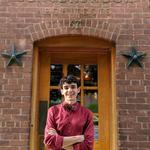 |
Misha Semenov-LeivaArchitectural DesignerMisha Semenov-Leiva is an architectural designer at Centerbrook Architects and Planners in Centerbrook, CT. He is a recent graduate of the joint Master’s program between the Schools of Architecture and Forestry/Environmental Studies at Yale, where he focused his studies on architectural strategies to reconnect the human habitat–our buildings and cities–with the natural world. Originally from San Francisco, Misha graduated in 2015 from Princeton with a major in Architecture and minors in Urban Studies and Translation. Misha was a proud Graduate Affiliate at Trumbull, and served as the head GA for Trumbull from 2017 to 2019. He is excited to remain part of the Trumbull family as a fellow and as organizer of the monthly Mellon Forum dinners for seniors. Besides his day job as an architect, Misha also sings with the Yale Camerata, runs a blog on architecture and nature (https://ecoempathyproject.wordpress.com), and enjoys all kinds of outdoor activities around his home in Essex, CT, including but not limited to kayaking, hiking, camping, and mushroom and wild plant foraging. He is also a translator of poetry from Russian to English, and loves discussing languages, literature, and culture. Email Misha Semenov-Leiva |
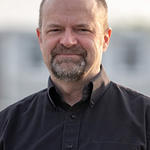 |
Adam SextonEnglishAdam Reid Sexton is a Lecturer in the English Department and a Critic in the School of Art. Since 2014 he has been the Trumbull College Writing Tutor. Adam’s writing has been published in the Boston Phoenix, the New York Times, the Village Voice, and other publications, and his books include Difficult Listening (forthcoming from Routledge in 2021) and Master Class in Fiction Writing: Techniques from Austen, Hemingway, and Other Greats (McGraw-Hill, 2005). With a team of visual artists he adapted four of Shakespeare’s tragedies as manga (Japanese-style graphic novels), and his anthology Rap on Rap was acquired by Harvard’s W.E.B. DuBois Institute for African and African American Research. Adam has taught writing and literature at Columbia, NYU, Rutgers, and Parsons School of Design. He holds a B.A. in English from the University of Pennsylvania and an M.F.A. in Writing from Columbia University.Email Adam Sexton |
 |
Nasrin ShahanaNeurophysiologistExperienced Clinical Specialist with a demonstrated history of working in the hospital & health care industry. Skilled in Clinical EEG including intracranial monitoring, SEEG, Evoked Potentials (SEEP, VEP and Aud EP), Transcranial Magnetic Stimulation (TMS), Repetative Transcranial Magnetic Stimulation (rTMS), Clinical Data Management, Good Clinical Practice (GCP), Healthcare, and Clinical Research. Strong healthcare services professional with a Doctor of Philosophy (PhD) focused in Neuroscience from University of Cincinnati. Email Nasrin Shahana |
 |
Anita Sharif-HyderAssociate Head of CollegeAnita Sharif is a respected higher education leader with over 25 years of experience in student affairs, academic administration, global education, and leadership development. She currently serves as Dean of Students and Assistant Dean of Academic Affairs and Student Life at the Yale School of Management, where she provides strategic leadership and oversight for a wide range of student services and academic support programs. In this role, Anita is responsible for shaping a holistic and inclusive student experience for Yale SOM’s residential MBA, Master of Advanced Management (MAM), and Master of Management Studies (MMS) students. Her portfolio spans academic advising, student life programming, curriculum coordination, mental health and wellness initiatives, crisis management, teaching support, tutoring services, student government engagement, and oversight of global study requirements. She also leads key institutional initiatives such as Orientation and Commencement and plays an integral role in maintaining SOM’s culture of academic integrity through her service on the Honor Committee and Academic Standards Committee. Anita is recognized for her collaborative leadership style and her ability to build cross-functional partnerships across the university. She works closely with departments including Admissions, Career Development, Community Engagement, Development and Alumni Relations, and Yale’s central administration to ensure a seamless and responsive student experience. She also manages the Academic Affairs and Student Life team, fostering an environment that prioritizes proactive support, equity, and excellence. Prior to her current role, Anita served for a decade as Senior Associate Director of Yale’s University-Wide Committee on Sexual Misconduct. There, she led complex case management processes, served as the university’s primary liaison to key stakeholders, and advised on policy implementation related to sexual misconduct and Title IX compliance. Her leadership in this space reflected a deep commitment to procedural fairness, trauma-informed approaches, and institutional accountability. Anita’s career in education spans a broad range of roles that highlight her global perspective and dedication to leadership development. As Assistant Director of Programs and Admissions at Yale World Fellows, she managed admissions and programming for an elite global fellowship that brings mid-career leaders from across sectors and countries to Yale. Her work included applicant evaluation, intercultural advising, leadership training, and building strong partnerships between Fellows and the Yale community. She also held key roles earlier in her career at Kaplan Test Prep and Admissions as a Center Director, and at the International House of Philadelphia, where she developed international residential programming and supported students from over 100 countries. Anita holds a Master of Arts in Counseling Psychology from Towson State University and a Bachelor of Arts in Psychology from Syracuse University. She is a certified mediator and Restorative Justice Facilitator and holds a Leadership Certificate from the University of San Diego Center for Restorative Justice. She is also conversant in several languages, including Bengali, Hindi, Urdu, Arabic, and French, and brings significant lived experience from having lived in Bangladesh, Egypt, India, Kuwait, and Venezuela. Anita is widely recognized for her leadership and service across the Yale community and beyond. Her honors include the Linda Lorimer Award for Distinguished Service, a prestigious university-wide recognition, as well as multiple awards for excellence in teaching and customer service from earlier in her career. She is also a graduate of Emerge at Yale, a competitive staff leadership program, and currently serves as Associate Head of College at Trumbull College, where she mentors undergraduates in both academic and co-curricular pursuits. Beyond her professional work at Yale, Anita is an active leader in civic and cultural life. She currently serves on the Executive Board of Directors of the Dialogue Institute (Philadelphia), is a member of the Advisory Committee for the MENA Center at Yale and sits on the Board of Directors of Long Wharf Theatre in New Haven. She previously served on the boards of the Connecticut Storytelling Center and participated in the Muslim Leadership Initiative at the Shalom Hartman Institute. Her work in interfaith dialogue, international education, and student development reflects her deep commitment to fostering empathy, cross-cultural understanding, and inclusive leadership. EducationMA, Towson State University, 1997 |
 |
Tony SheldonSchool of ManagementTony Sheldon is the Executive Director, Program on Social Enterprise, Innovation, and Impact and a Senior Lecturer in the Practice of Management at the Yale School of Management. He teaches practicum courses on social entrepreneurship, in which student teams work with organizations in India, Brazil, and Kenya, as well as a course on social “intra-preneuship” in the Executive MBA program. Tony’s professional background is in international development. He has worked with microfinance institutions in Africa, Asia, Latin America, and Eastern Europe, primarily in the areas of business planning, financial modeling, and social performance management. Tony has also been a consultant to several development finance networks and funders, including the Ford Foundation, the World Bank, the Consultative Group to Assist the Poor (CGAP), ShoreBank International, and Women’s World Banking. His most recent publications are as co-author of Evidence In Practice: Toward an Integrated Approach (Yale SOM, 2018), a summary of the findings of a two-year research project funded by the Hewlett Foundation, and From Extreme Poverty to Sustainable Livelihoods (World Bank 2018), on a unique program that combines social protection, livelihood development and financial services to reach extremely poor households. Other publications include CGAP’s Handbook on Business Planning and Financial Modeling for Microfinance Institutions and Women’s World Banking’s Principles and Practices of Financial Management. Email Tony Sheldon |
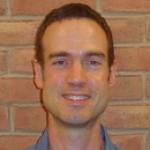 |
Andrew ShimpLibrarianI am a librarian in the engineering and sciences at Yale supporting the School of Engineering & Applied Science and the Chemistry and Mathematics Departments. As a library liaison I am committed to user-centered services and have built relationships through individual reference interactions, research consultations, and instruction. I have expanded my skills to support reference management systems such as EndNote. I am currently engaged in new opportunities for outreach to entrepreneurial programs including teaching workshops for undergraduate and graduate members of the Yale Entrepreneurial Institute Summer Fellowship Program and the Center for Engineering Innovation and Design. I have co-organized library programming in the Center for Language Study’s summer session for new international students and developed workshops for the Yale Young Global Scholars Program. In addition to being employed as a science librarian, I have an academic background in the humanities with an undergraduate degree in History and a minor in Art. I recently served as a judge for senior essays in the humanities submitted for Manuscripts & Archives prizes. My interests include studying and collecting American art, particularly related to printmaking. I also enjoy hiking especially in the White Mountains of New Hampshire. Email Andrew Shimp |
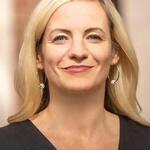 |
Julia SilvestriLectorDr. Julia Silvestri, Ph.D., Ed.S, is a lector in American Sign Language and coordinator of the ASL program. She earned her Ph.D. in Physical Disabilities from Teachers College, Columbia University, where she worked as a professor of ASL and Deaf Studies. From George Washington University, she earned an Ed.S. in Educational Leadership, and from Smith College, an M.E.D. in Deaf Education. In addition to a background as a K-12 educator and administrator in a range of schools for the deaf and public school programs in New York, Connecticut, and Massachusetts; she participates in ASL poetry, film, and performance arts organizations as a producer and performer. Her research interests include Deaf Music, Deaf Studies, ASL Phonology, Bilingualism and Literacy, Adult Reading Strategies, and Universal Design for Learning (UDL). Email Julia Silvestri |
 |
Stefan SimonPreservation Cultural HeritageStefan Simon is a conservation scientist with broad experience in scientific research and multilateral project coordination. He has specialized in material deterioration diagnostics, microanalytics, non-destructive testing, physico-chemical analysis and climatology. Other areas of specialization include the testing and evaluation of conservation products and the control of treatment efficacy and durability. He is the founder and director of the private laboratory KDC Konservierung & Denkmalpflege Cons. in Olching (Germany) since 1993, he is teaching conservation science at Munich Technical University since 1998. From 2001-2005 Stefan Simon was heading the “Building Materials” section at the Getty Conservation Institute, Los Angeles, before being appointed Director of the Rathgen Research Laboratory at the National Museums, Berlin in February 2005. Stefan Simon was elected member (2005-2013) and Vice President for Finance and Administration of ICCROM Council (2009-2011). Since 2008 he is President of the ICOMOS International Scientific Committee Stone (ISCS) and since 2012 corresponding member of the German Archaeological Institute (DAI). Since 2009 he is Honorary Professor at X´ian Jiaotong University (PR China), since 2013 also at Technical University Berlin. On April 1st, 2014, he was appointed Inaugural Director of Yale´s new Institute for the Preservation of Cultural Heritage (IPCH) at West Campus, overseeing its scientific, digital and conservation departments and programs. Email Stefan Simon |
Gurbakhshash Singh |
|
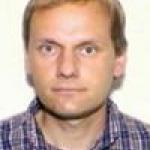 |
Witold SkibaPhysics |
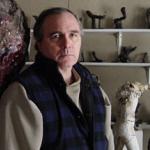 |
Ed SmithSculptor |
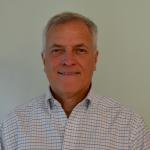 |
Wake SmithWake Smith is a Lecturer in the Yale School of Environment, where he teaches a graduate level course on climate engineering. He is also a Research Fellow at the Harvard Kennedy School. His book Pandora’s Toolbox: The Hopes and Hazards of Climate Intervention was published by Cambridge University Press in March 2022. He has published scholarly papers on the aeronautics, costs, and governance of solar geoengineering and has helped develop preliminary designs for high altitude research aircraft. He was previously a senior executive at Boeing among other commercial aviation firms and earned a BA from Yale and an MBA from Harvard. |
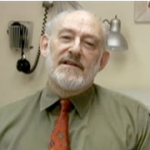 |
Sydney SpieselSchool of Medicine/PediatricsSydney Spiesel is a pediatrician specializing in adolescent medicine and is on the clinical faculty of the Yale University School of Medicine. He is a regular commentator for Slate magazine and National Public Radio. He is also the inventor of a shampoo that makes lice eggs fluoresce under ultraviolet light, so making them more visible. Email Sydney Spiesel |

